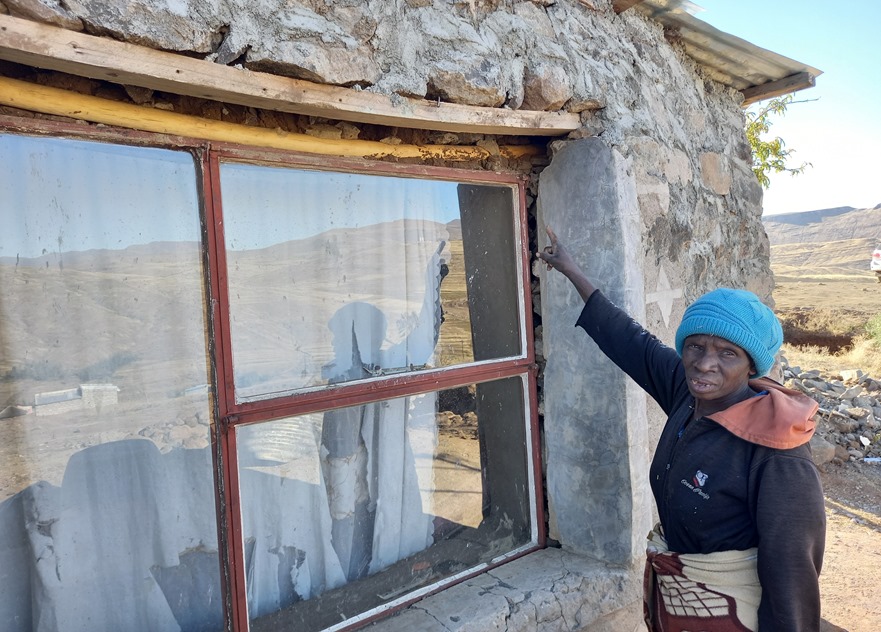Natural resource curse: a case of Lesotho Highlands Water Project
Lesotho is on the verge of beginning construction of Polihali Dam under Phase II of LHWP. In fact, advance infrastructure works are already being implemented, to pave way for the dam and already, the negative impacts on the communities are enormous. Women in particular are the ones who tend to bear the brunt of the severe social, economic and environmental hardships which come with these developments. One of the many women who are affected by this project spoke to Seinoli Legal Centre (SLC) about her plight.
‘M’e Mantloheleng Keqa is a woman from the village of Ha Ramolakalali, whose house was mowed down by a construction vehicle working on the project. Not only was she left homeless for days but her household items, cooking implements, and furniture were destroyed, limiting her ability to provide food and warmth for her family. With the shabby patch works done and no economical support, she and her family are left with no choice but to continue living in a house that is clearly unsafe for them.
Rightfully, LHDA as the implementing authority has the obligation to ensure the wellbeing and safety of people affected by LHWP as well as ensuring that people are compensated for the losses they incur as a result of the project. For ‘M’e Mantloheleng, this is a legal imperative which is yet to be fulfilled. Her lack of access to justice and remedy and her inability, due to financial limitations, to access lawyers and the courts of law has clearly worked to her disadvantage. This is the reality for thousands of people who are affected by this project.
Seinoli Legal Centre has been working directly with the affected communities for many years to provide capacity strengthening, legal support and tools to enable communities to assert and demand their rights and to promote and protect the rights of people like ‘M’e Mantloheleng.


